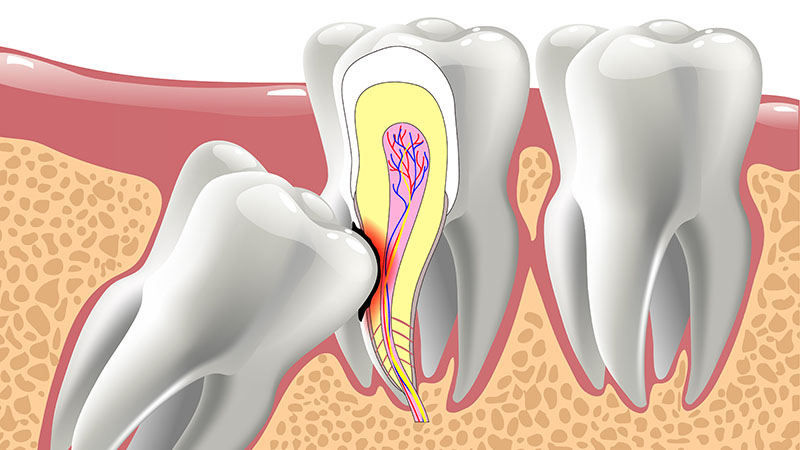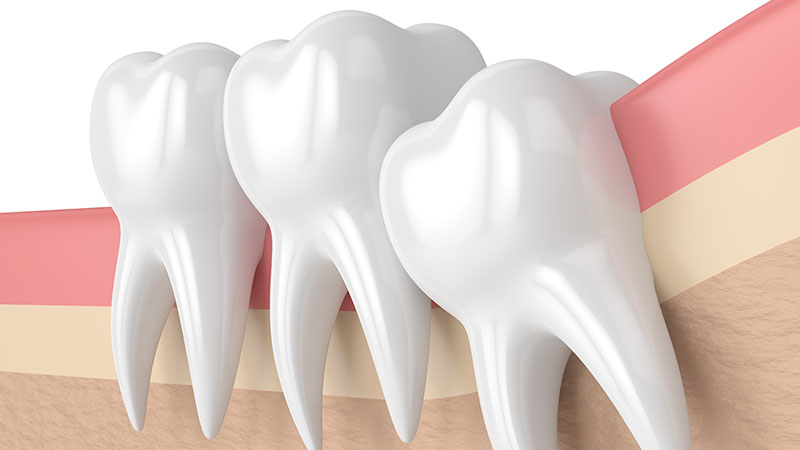Wisdom Teeth removal
Wisdom teeth are third molars on each side of the upper and lower jaws that are the last teeth to erupt in the mouth. For some people, wisdom teeth cause no problem, however, for others it could cause severe pain. The pain is usually because the tooth may be infected or the jaw is not big enough to accommodate the wisdom tooth, and therefore it presses against the neighbouring tooth. Wisdom teeth that only partially emerge or come in crooked can also lead to painful crowding and disease.
Impacted wisdom teeth (wisdom tooth that press up against neighbouring molars) could lead to an infection called pericoronitis, which can spread to the throat and into the neck if the wisdom tooth is not removed.
Symptoms of an impacted wisdom tooth include:
- Swelling of the gum in the back of your mouth
- Difficulty opening your jaw
- Bad breath
- A bad taste in the mouth
- Pain when you open your mouth
- Pain when chewing or biting
- Pain that occur for several days and then disappear, only to return weeks or months later.
After a wisdom tooth is extracted, patients may experience some swelling and pain around the area where the wisdom tooth had been removed. While your mouth heals, it is important that you do not dislodge the blood clot that may form on the gap left behind by the wisdom tooth, as this will prolong the natural healing phase of a wisdom tooth extraction.
You should not brush your teeth for the first day of recovery, and be sure not to consume any solid foods, alcohol, coffee, soda or hot beverages during the first few days following your procedure. Typically, wisdom teeth recovery time is three to four days, although it can be as long as one week. The length of recovery depends a lot on how badly the wisdom teeth were impacted and how they were erupting.


